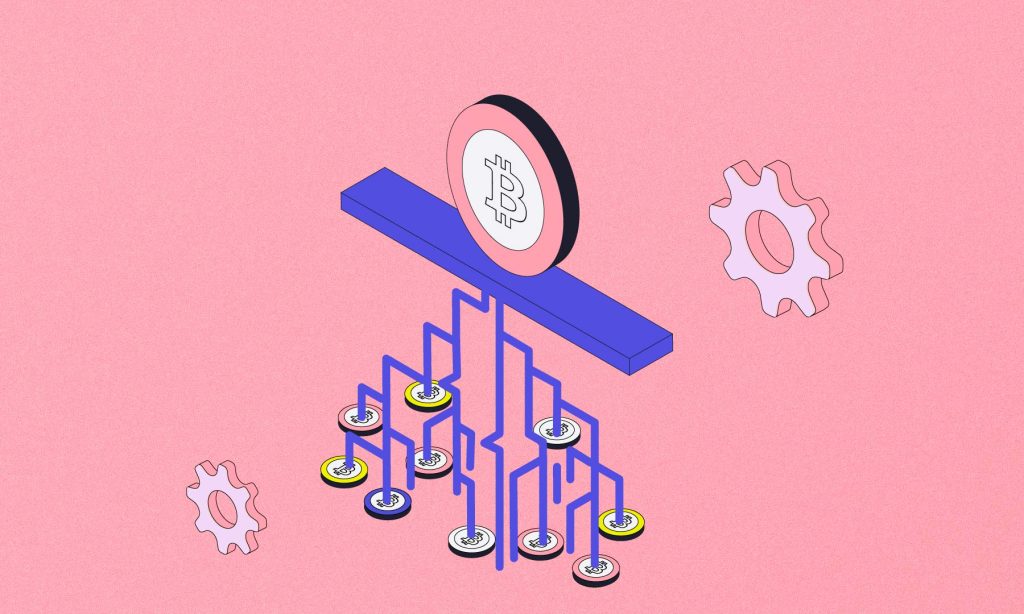The Bitcoin Taproot Upgrade is one of the most critical events in the history of crypto. It increases the speed of transactions, so users can send and receive payments quickly. With the upgrade, Bitcoin can process over 1,000 transactions per second—a relatively high number compared to other cryptos.
This article explains what the upgrade translates to in real terms.
What is Taproot?
Bitmain Technologies Ltd., one of China’s largest Bitcoin mining companies, has developed a new version of the Bitcoin protocol called Taproot.
Essentially, there are three major ways that the Bitcoin protocol can be modified to upgrade it—hard forks and soft forks. A hard fork changes the rules of how Bitcoin works without needing to update all users. A soft fork, on the other hand, keeps the current version working with older versions until the update is complete, so only those who wish for a new upgrade will have access to it when it happens. Taproot is the second kind of fork.
Taproot tries to solve the problem of scaling and privacy—both of which have been considered Bitcoin’s most significant shortcomings since its release in 2009.
It does this by integrating new features such as the Schnorr digital signature scheme. With this, the blockchain combines multiple signatures and transactions into one entity and verifies them as one, making transactions faster.
It’s also an upgrade that aims to strengthen the confidentiality of transactions and make them more scalable by increasing size limits.
Why was this upgrade needed?
Before the introduction of Taproot, there were some problems with the Bitcoin blockchain network.
- Transactions on the previous version of the network used to be slow, because each signature had to be validated against a public key. Verification was time-consuming and caused network traffic to build up. This resulted in delayed transactions and increased transaction fees.
- The Bitcoin network used a peer-to-peer transaction verification technique, which did not have privacy—any user could access your transaction. This too created the need for an upgrade.
- Even though the Bitcoin Taproot Upgrade does not translate into anonymity for your Bitcoin address on the blockchain, the upgrade does make simple transactions indistinguishable from those that are more complex. Anyone who does not have the unique private key will find it harder to access the transactions—which means more safety for users.
How would Taproot impact Bitcoin?
Taproot will make Bitcoin transactions more private, scalable, and secure. The upgrade aims to improve the original version of Bitcoin’s blockchain technology by making it more decentralized through smart contracts and effecting other improvements such as faster confirmation times and lower fees per transaction.
In addition, Taproot also reduces miner fees while increasing security against hackers who may try stealing from user wallets online or on mobile devices.
How will it impact investors?
Bitcoin Taproot allows investors to create their virtual wallets for cryptos with zero transaction fees. Investors can buy and sell coins anytime without having to pay any commissions or the involvement of third parties such as banks or brokers.
What can we expect from the upgrade?
There are a series of benefits that the upgrade brings about from a user’s point of view. Below are the main points to note.
Improved security
Taproot provides greater security against hacks because it limits the number of hashes per second that can be computed from one user’s address at any given time. The developers have added another layer of encryption on top of the existing one in order to make the system more secure. Operators already using the system and contributing to security will be compensated in Bitcoin through this new version.
Less time is needed to sync the wallet to another node
With this upgrade, you do not need to wait hours or even days for your wallet to sync up before you can use it again. Instead, you simply need to download your wallet and open it on your computer or mobile device after syncing up with another node and you will be able to use it again without any delay.
Improved efficiency
When connected to a different node, all transactions will be automatically converted into BTC. You only need to keep tabs on updates once every two weeks or so.
Better scaling
Taproot improves scaling by increasing transaction throughput without requiring additional space in the blocks being created. This means no longer needing to shoulder mining equipment costs when trying out new apps.
Conclusion
The Bitcoin Taproot upgrade is a significant improvement in the Bitcoin network and helps make it more secure. Developers and experts from around the world tested the new version of the software. They have come up with further improvements that could help make Bitcoin Taproot even more secure.
FAQs
What is the impact of taproot on Bitcoin?
the Taproot upgrade enhances Bitcoin’s privacy, efficiency, and scalability while enabling more complex smart contracts, making it a significant step forward for the network’s utility.
What is Bitcoin Taproot upgrade?
the Bitcoin Taproot upgrade is a major advancement that enhances Bitcoin’s efficiency, privacy, and smart contract capabilities by optimizing the way transactions and signatures are processed on the blockchain.
What are the benefits of taproot addresses?
Taproot addresses offer improved privacy, cost-efficiency, and speed for Bitcoin transactions, while also reducing the risk of data exposure and increasing versatility in scripting options. These benefits contribute to a more secure, private, and functional Bitcoin network.
What is Taproot protocol Bitcoin?
This upgrade is a significant step forward for Bitcoin, enhancing both its privacy and scalability while lowering transaction costs. It’s an important milestone in the ongoing development of the Bitcoin network.








